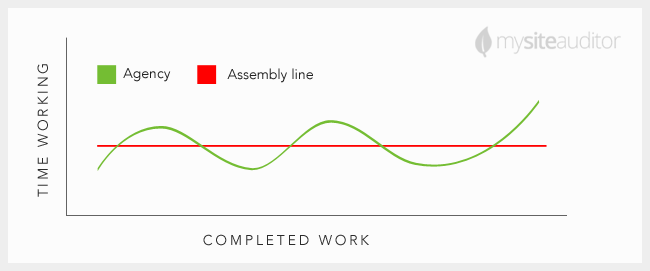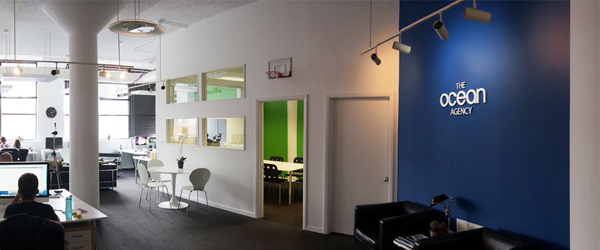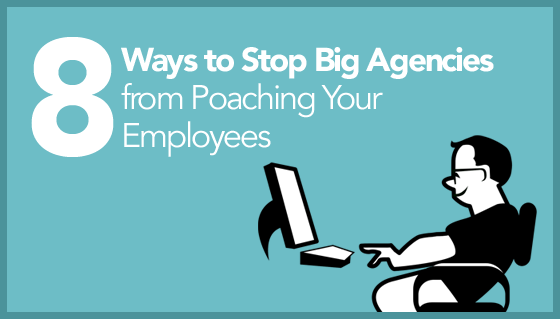- Backlinks Explained: Why Your Backlinks Aren’t Paying Off - April 10, 2024
- Boost Your Agency’s Credibility: A Guide to Online Reputation - April 10, 2024
- URL Slugs for SEO: A Comprehensive Guide - April 10, 2024
Before being acquired, one of the biggest challenges I faced while running my boutique digital marketing agency was watching my employees get poached by bigger agencies who offered more money and more benefits. Being a boutique, I hired a lot of entry and junior level people. I prided myself on being able to spot potential and great personalities when I couldn’t afford a senior level person. However, entry and junior level people with lots of potential and great personalities eventually want and deserve more money and better benefits. So, over the years I learned eight simple ways to keep my employees super happy, and how to use my agency’s size to my advantage. If one of my rockstars was thinking about leaving, they’d be giving up a lot more than money and “better” benefits.
1. Flex hours (Freedom)
In my office, you could start work as late as 10am, and you could leave when you put in a solid day. There was no reason to make my team get to work at 7am or 8am, unless they wanted to. If they had kids, they could see them off to school. If they wanted to sleep in, they could do that too.
In an agency, employees aren’t on an assembly line. Workload goes up and down. Sometimes you’re busy, sometimes you aren’t. So, why judge employees on whether or not they are sitting in their chair at a certain time?

2. Coffee shop days (Freedom)
Anytime my employees wanted to work from a coffee shop, I was OK with that. All they had to do was shoot the team an email that said something like this: “Hey, super busy and need to focus. Working from Robust Coffee. I’m here if you need me.”
There are so many distractions when working in a creative office, so I totally understood the desire to work somewhere else when you’re trying to write a monthly client report, or a strategy brief. In fact, working from coffee shops was my suggestion, not my employees.
3. Everyone had incentive
When a new employee asked for $50K per year, I’d offer them $60K+, but they would get $40K base and have to earn the rest. Everyone on my team was incentive based, not just the sales people, and they loved it. This meant that the harder they worked the more money they’d make.
My employees each got percentages of the deals they re-signed, the sales they made, and the money the company brought in each month. So, if we hit our monthly goal of X, my entire team split 10% of X. In all my years, I have never seen my team work harder than when I made everyone have mandatory incentive.
4. I never counted vacation or sick days (Freedom)
Why the hell would I care how many sick days or holidays my employees took? In my office, you were judged by productivity, not how many hours you were sitting at your desk. You either got your work done on time or you didn’t. Your clients were either happy, or they weren’t. That’s how I judged you. You know, and the team knows, when you’re abusing the policy, and guess what? Like in the Army, if you slack, the whole team suffers. If the whole team suffers, that effects their incentive. Needless to say, abuse of sick days and holidays was never a problem.
5. A livable work environment
I tried to make my office feel like home; we had couches, sitting tables, TVs, video games, basketball hoops and more. The layout was one big open floor plan with lots of natural light, where everyone could see each other and breeeeeathe.

6. 2-Year career outlooks
I never asked where my employees wanted to be in five years. I sat each of my employees down and asked them where they wanted to be in two years. If someone said more money, I’d give them a path of goals to achieve that financial goal at our agency. If an employee wanted a different or higher position, I created a path for them to get there.
My employees always saw the immediate future. Five years was way too long to wait for someone’s goals to be realized in an office.
7. Mutual loyalty
I used to hate the word “loyalty”. I’m not sure why, it just seemed demeaning to ask for it. So instead, I asked each employee for a “mutually loyal relationship”. I promised to be loyal to them, if they promised to be loyal to me. It sounded way better, and it worked. If they had a problem or were thinking about leaving our team, they would first come talk to me to see if we could resolve the issue. This was huge because back in the day, I had a few employees just leave for bigger agencies, with little or no warning.
On the other hand, if I had an issue with an employee, I would grant them the same respect. I would tell them my issues and provide them an opportunity to resolve the issues.
8. Wear whatever the fudge you want (Freedom)
Comfortable employees are happy and more creative employees. I really didn’t care what you wore, unless a new client was coming in.
In conclusion
Employees are people. They have the same hopes and desires you have. They want to be happy. They want to minimize stress. They want to know that the harder they work the more they get paid. Most importantly, they want freedom. Freedom to rest when they want to rest, and freedom to be who they are.
Try incorporating these easy tactics at your agency, and I bet you’ll drastically minimize the amount of employees who get poached by bigger agencies.
If you have any more ideas on how to stop employees from getting poached by bigger agencies, let me know in the comments below.
